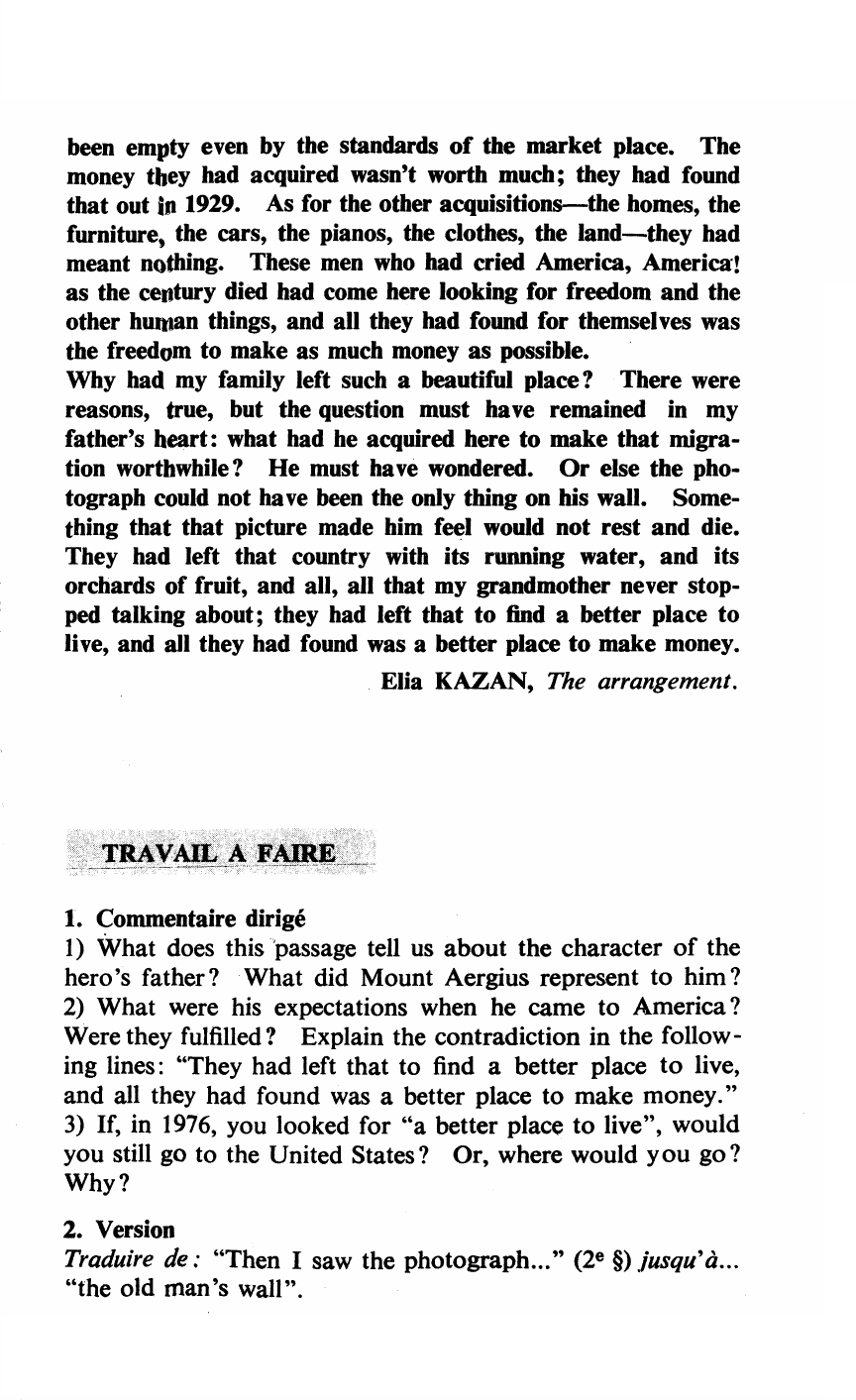THE PHOTOGRAPH
Publié le 07/02/2012

Extrait du document
In my father's room, there was a small tray with some medicine on it and nothing else. It was a neat room, no sign of human disorder. Where bad he lived his life? Where were the traces of the things he had valued? Then i saw the photograph. It was a poor example of tbat art, in colouring dun (1), in delineation soft. But it was the only picture on his walls. None of his sons, no picture of his wife. There were no photographs of his store, of his stocks, of the National City Bank, or his collection of Oriental Rugs and Carpets. Or of his cardplaying cronies (2). None of them, none of us, meant that much to him. But this photograph did....
«
been empty even by the standards of the market place.
The
money
tiJey bad acquired wasn't worth much; they bad found
that out 111 1929.
As for the otber acquisitions-the homes, the
furniture,
the cars, the pianos, the clotbes, the land-they bad
meant
nothing.
Tbese men who bad cried America, America!
as the century died bad come bere looking for freedom and the
other
hlllti8D things, and ali they bad found for themselves was
the freedom to make as much money as possible.
Wby bad my family left such a beautiful
place? Tbere were
ressons, true, but the question must have remained in my
father's beart: what bad be acquired here
to make that migra
tion wortbwhile? He must have wondered.
Or else the pho
tograph could not have been the only thing on his wall.
Some
thing that that picture made him feel would not rest and die.
They bad left
that country with its running water, and its
orchards
of fruit, and ali, ali that my grandmother never stop
ped taiking about; they bad left that to find a better place to
live, and ali they bad found was a better place to make money.
Ella KAZAN, The arrangement.
1.
Commentaire dirigé
1) What does this 'passage tell us about the character of the
hero 's father? What did Mount Aergius represent
to him?
2) What were his expectations when he came to America?
Were they fulfilled? Explain the contradiction in the follow
ing lines:
"They bad left that to find a better place to live,
and
ali they bad found was a better place to make money."
3) If, in 1976, you Iooked for "a better place to live", would
you still go to the
United States? Or, where would you go?
Why?
2.
Version
Traduire de: "Theo I saw the photograph ...
" (28 §)jusqu'à ...
"the old man's wall"..
»
↓↓↓ APERÇU DU DOCUMENT ↓↓↓
Liens utiles
- Portrait of Theodorus Van Gogh (Van Gogh's father), Etten 1881 and Portrait of the Artist's Mother (from a photograph), Arles 1888 - Vincent Van Gogh
- exposé anglais introduction to the Consumer Society
- Le théâtre a-t-il pour fonction de tout dire, de tout expliquer au spectateur de la crise que vivent les personnages? - Par quels moyens et quelles fonctions Juste la Fin du monde est une pièce qui nous retrace la crise de cette famille?
- Ideology and Rationality in the History of the Life Sciences
- is the cultural difference a barrier between individuals.


